5 Films “Based on True Events” That Aren’t So True
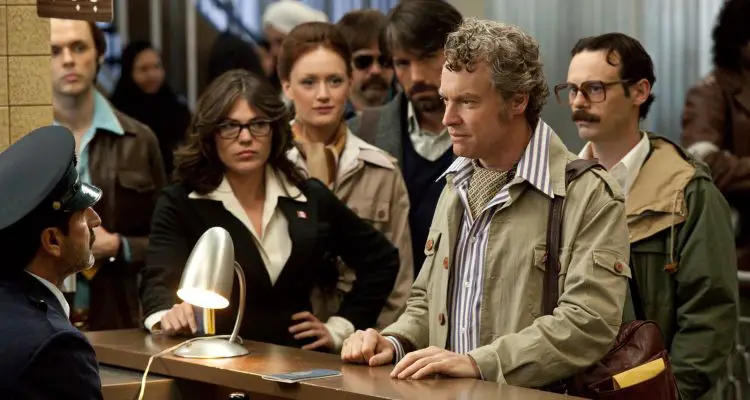
Derrek is a film enthusiast from Buffalo, NY. When he's…
I’d be lying if I said it hasn’t lured me into watching a movie or two: the old “Based On A True Story” tagline. The Conjuring, a recent horror release that is based on the true story, involves possessed dolls and physical apparitions and it’s not necessarily something everyone would believe to be true, so how factual can the story be? Lone Survivor, Wolf of Wall Street, and Saving Mr. Banks all came out in the past year with these “true” origins, and often times it generates a little buzz because the accuracy of the statement is called into question.
Let’s be honest though, Hollywood is all about the bigger explosion, the faster chase, the perfect revenge, and they will mix and match fact and fiction to fill seats. Let’s look at five films that use this device and see just how far they stray from their claim.
5. Good Morning, Vietnam (1987)
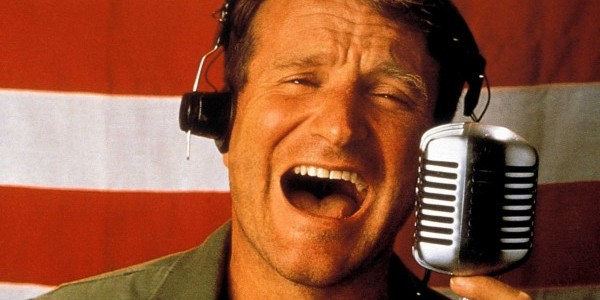
The late Robin Williams brought the story of Adrian Cronauer to the big screen. His portrayal was larger than life and dealt with his antics on the air and the realities of fighting a war in Vietnam off the air. Even though Adrian Cronauer is a real person, even he admits that the movie wears a Hollywood sheen.
“The movie is much more interesting than the experiences I had.” “Williams is the disc jockey I would have liked to be,” Cronauer said.
Williams character constantly butted heads with superiors and reported the news like it was standard American radio. While Cronauer did attempt to soften the very rigid military broadcast style, and added his own humorous twist, he did not cross the line so much as to get kicked out of Vietnam but left when his tour of duty was over. Cronauer did, however, witness the bombing of a restaurant in Saigon and was not allowed to report it according to army censors, though as Williams portrayed in the film, he made the reported it against orders. The real life Cronauer also spent time teaching English for the VIetnames-American Association, as did his fictional counterpart.
Non-Fiction Rating: 7/10 – Close to the truth with many of the plot points occurring in real life but most of the humor and dramatic flair on the part of the main character was added by Robin Williams. (source)
4. 21 (2008)
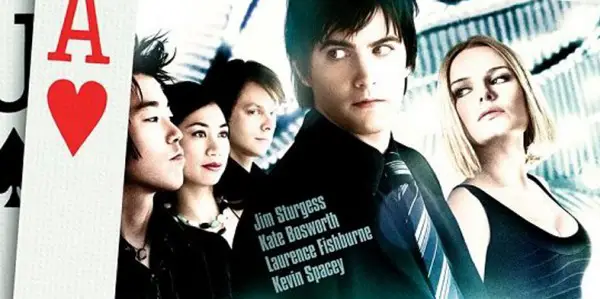
Jim Sturgess plays Ben Campbell, based on the real life Jeff Ma, who went to MIT and joined a team of card counters playing black jack for big money…and that’s pretty much where the similarities end. Jeff Ma was not playing to save money for medical school, in fact, he didn’t attend medical school because of the money he made with black jack. There was also no romance: Kate Bosworth’s character Jill, who was based on real life Jane Willis, was recruited with her then boyfriend with no relationship between her and Jeff Ma occurring.
The above notwithstanding, the method of card counting they showed was accurate. Code words were used to represent the count, or the playability of the table. However, nobody was actually beat up for counting cards when they got caught. Instead, they were blacklisted from many casinos.
Non-Fiction Rating: 4/10 – While the main plot line is based on true events, many of the details are creations of the writer. Honestly, the story would have been rather weak without the embellishments, but that doesn’t help back-up the true story claim. (source)
3. Mississippi Burning (1988)
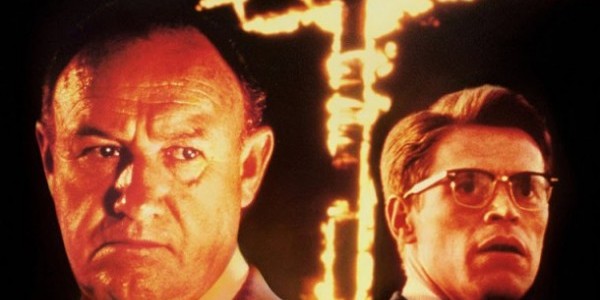
When three civil rights workers are murdered in rural Mississippi, Agents Alan Ward (Willem Dafoe) and Rupert Anderson (Gene Hackman) are sent to investigate the disappearances. Due to local law enforcement’s ties with the Ku Klux Klan, the murders were difficult to investigate; they found the bodies with the help of an informant. In the movie this informant was the Deputy Sheriff’s wife. In the real case, however, the informant is thought to be highway patrolman Maynard King.
After agreeing to use non-FBI approved tactics to bring down the local Klan members, the movie has the mayor being kidnapped and tortured to determine who killed the civil rights workers and where their bodies are. This incident echoes the real life kidnapping of an appliance salesman who was interrogated by an FBI agent and FBI informant Gregory Scarpa Jr. though the FBI’s official version is that the FBI paid for the information.
Non-Fiction Rating: 6/10 – They didn’t stray too far from the facts, but if they had followed the FBI’s official report, it would have been an awful story. With the addition of a sympathetic story line and an interrogation that would make anyone uncomfortable, the movie became much more of a thriller. (source)
2. Argo (2012)
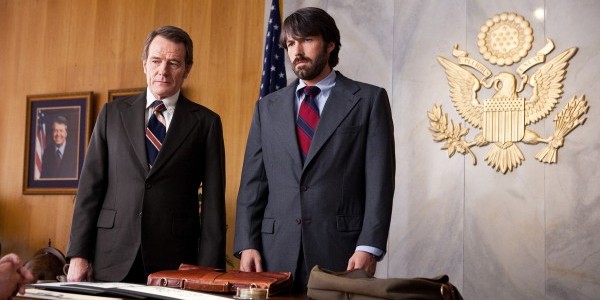
Under the guise of filming a Star Wars rip-off, CIA agent Tony Mendez (Ben Affleck) sneaks into Iran in order to sneak 6six other Americans out. While the film does a pretty good job of showing events as they happened, there are some misgivings in regards to who planned and executed the exfiltration of the Americans. The movie certainly makes it seem like the CIA and Hollywood professionals constructed and carried out the entire plan with a little help from the Canadian government. The truth is a little less one-sided, at least for the United States. Former President Jimmy Carter was asked about the film on CNN and said:
“90 percent of the contributions to the ideas and the consummation of the plan was Canadian.”
That wasn’t the only twist on the truth. While I’m sure the time in the airport was anxious for all involved, they weren’t facing the down-to-the-wire chase the movie gave us. There was a mechanical delay, what I’m sure was the tensest hour in an airport anyone could experience, but the flight was called and soon they were in the air. When the plane crossed out of Iranian airspace, the Americans did indeed cheer, but they were joined by many on the plane, everyone happy to be flying away from that situation.
Non-Fiction Rating: 7/10 – While the movie did gloss over the actual operation’s driving force and the event surrounding the last leg of their escape, it did capture many other aspects accurately. When the plan goes off without a hitch, the drama isn’t exactly ratcheted up. Seems to be a common theme in this article, ramping up the intensity of the story. Wink wink. (source)
1. Fargo (1996)
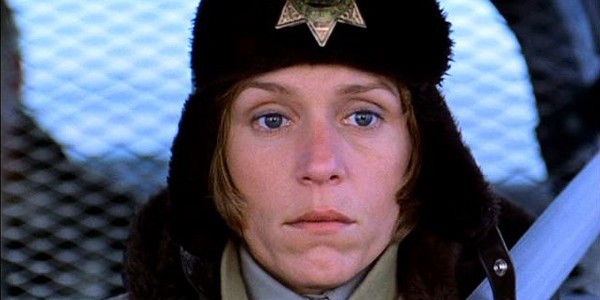
This is a slightly different example of the “True Story” genre. While the movie is loosely based on a husband murdering his wife and disposing of the body using a wood chipper, the majority of the story is a work of fiction. This is claimed to be purposeful on the part of the Coen Brothers. Joel Coen said:
“If an audience believes that something’s based on a real event, it gives you permission to do things they might otherwise not accept.”
This is an interesting tactic on the part of the directors. They can have a little more “fun” with the events of the movie because the idea of it actually happening is a little ridiculous. It lends credence to plot points that have none whatsoever. I’m not sure how much the addition of the tagline affected the movies reception but it certainly helped to build some hype and immerse the viewer in the story.
Non-Fiction Rating: 1/10 – “Loosely based on” might even be a stretch, this movie is fiction through and through. (source and source)
Hollywood is a business, and their business is based on entertainment. To tell any of these stories 100% factually, there may not be much entertainment to be garnered. While they may bend facts to compress the amount of information contained, or to limit the number of characters involved, this is rarely where the changes stop.
Movies are supposed to allow you to suspend some disbelief, so, of course some card-counting kid has to get roughed up by casino security, just like the army disc-jockey with a heart of gold will stand up to his superiors no mater what they say. If they didn’t, movies would rarely be extraordinary and instead would be rather ordinary.
What do you think about the “Based on a True Story” tagline? Does Hollywood go too far in using it or has it become par for the course? Would you rather see it more clearly defined or do you ignore it all together? Let us know in the comments.
(top image source: Argo – Warner Bros.)
Does content like this matter to you?
Become a Member and support film journalism. Unlock access to all of Film Inquiry`s great articles. Join a community of like-minded readers who are passionate about cinema - get access to our private members Network, give back to independent filmmakers, and more.
Derrek is a film enthusiast from Buffalo, NY. When he's not busy fighting crime or rescuing kittens, he works as a designer for an automotive manufacturer. His favorite way to unwind after a long week is with a new movie or an old favorite. From Alice in Wonderland to The Avengers, from Zorro to Zoolander, let's talk film.













